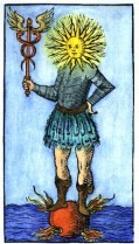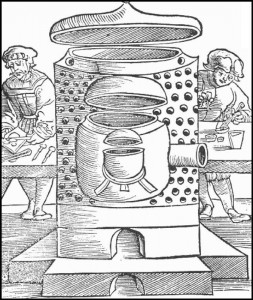“Only after I had familiarized myself with alchemy did I realize that the unconscious is a process, and that the psyche is transformed or developed by the relationship of the ego to the contents of the unconscious. In individual cases that transformation can be read from dreams and fantasies. In collective life it has left its deposit principally in the various religious systems and their changing symbols. Through the study of these collective transformation processes and through understanding of alchemical symbolism I arrived at the central concept of my psychology: the process of individuation.” -C.G. Jung, Memories, Dreams, Reflections, p. 235.
Sea change. Your psyche isn’t a fixed entity. It’s unfinished business–it goes through transformations. Look closely, and you’ll notice that the symbols that come up in your dreams and fantasies express these transformations. Jung says he found parallels to these processes in myths and religions and even the obscurities of alchemy. Turns out something discernable is going on in us, something that creates changes in recognizable patterns and that issues forth a changed you…an individuated you. Maybe there is something to trust in this individuating. I hope so. I’m counting on it!



